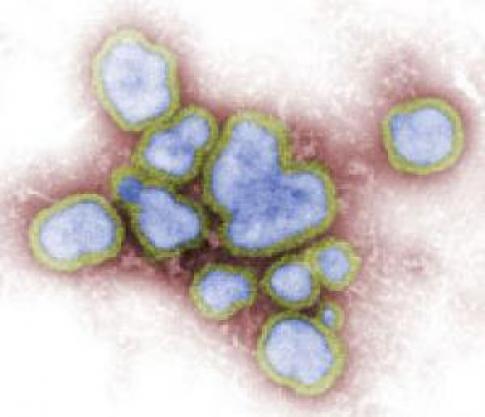Latest News
FDA unveils biosimilars guidance

Move could open the door to cheaper generic versions of biological drugs.
Heidi Ledford
The US Food and Drug Administration (FDA) today released its long-anticipated draft guidance for drug makers interested in making generic forms of biological drugs such as enzymes and antibodies. The move could open the door for cheaper versions of some of medicine's most expensive drugs, but it is still unclear how many companies will be willing to tackle the challenges and uncertainties of making 'biosimilar' drugs (see 'Biosimilar drugs poised to penetrate market').
Copying biological molecules is a stickier proposition than making ordinary generic medicines because proteins are typically much larger and more complex than small-molecule drugs. They are also often produced in cell cultures, and even small variations in how the cells are grown can change the properties of the protein produced (see 'Biotechs go generic: the same but different').
"It's a completely new paradigm," said Rachel Sherman, director of the office of medical policy in the FDA's Center for Drug Evaluation of Research during a press conference today. "Even one manufacturer's product may vary from lot to lot."
As a result of this complexity, it has been unclear just how 'abbreviated' an abbreviated approval process for biosimilars could be. Would clinical trials in humans be mandatory? How large would those clinical trials need to be? Companies interested in entering the biosimilars field have been anxiously awaiting guidance from the FDA since the 2010 passage of the Affordable Care Act granted the FDA the authority to regulate the new class of drugs (see 'US health bill promises changes for biomedical research').
Ultimately, the FDA provided few concrete details about what would be required, preferring to judge on a case-by-case basis. That offers flexibility, but companies may be deterred by the lack of specificity, cautions D'vorah Graeser, a patent agent at Graeser Associates International, a law firm based in Chicago and Israel. "I don't think [the FDA] gave much guidance," she says, noting that the first few companies to jump in are still taking on a big risk. "They may be rejected and have to go back to the drawing board several times," she says. "And that's tough."
Graeser says that for now, she will continue to advise her clients to look to the biosimilars guidelines issued by the European Medicines Agency (EMA), which has issued more detailed requirements for specific classes of biological drugs. The FDA may not follow those same boundaries, but it will at least give companies a concrete sense of what may be expected of them, Graeser says.
Some of the uncertainty will be eased by the extensive early consultations with the FDA called for in today's guidance, adds Peter Reichertz, who leads the FDA practice at Sheppard Mullin, a law firm based in Los Angeles. The FDA is pledging to work with companies to define what is required of them after they have worked out manufacturing details and gathered preliminary data showing how similar their molecule is to the original drug.
It's also possible that the FDA will release additional guidance, as the EMA did, to provide more details, he adds. Sherman remained noncommittal on that notion. "We're not sure," she said today. "At the moment we're trying to get the most bang for our buck and cover the most territory possible, and going crack-by-crack does not seem to be the way to do that."
The FDA has committed to providing at least one more needed guidance document: one to show what standards need to be met for a biosimilar drug to be considered interchangeable with the original drug. That designation may allow pharmacists to substitute the biosimilar drug when a doctor has prescribed the original medicine, a move that historically has allowed generics to whittle away more of a branded drug's market. So far, one thing is clear, said Sherman: the hurdles for interchangeability would be high. Biological drugs carry the added risk of prompting an immune response, she noted, and the FDA would almost certainly require added clinical trials in which a patient is switched from the branded drug to the biosimilar and back to rule out the risk of triggering the immune system.
"There's still a lot of issues that the FDA needs to issue guidance on," says Reichertz. "But at least we now have initial guidelines for companies who are thinking of pursuing this." Nature
Rate this article




 del.icio.us
del.icio.us Digg
Digg

Post your comment